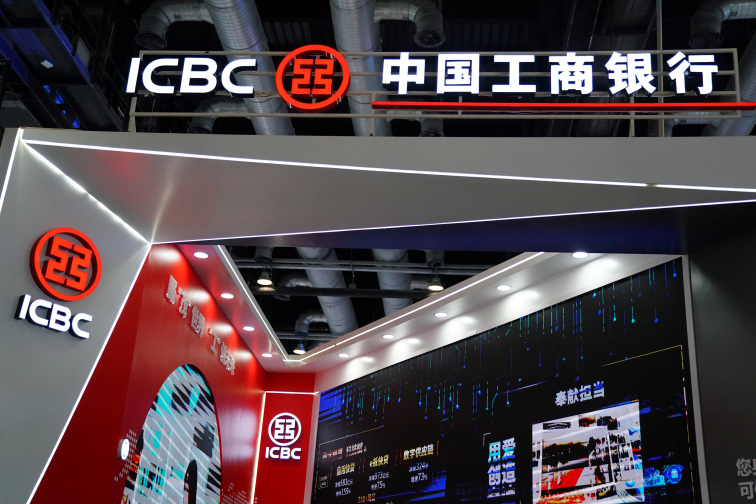[October 15, 2024] Since the Chinese Communist Party (CCP) took power in 1949, it has ruled with violence and repression, establishing a dictatorship centered on authority. This form of governance has remained unchanged for decades, relying on harsh measures to suppress public dissatisfaction and resistance. Today, under the CCP's authoritarian rule, China faces increasing societal problems, particularly with the younger generation, who are grappling with deteriorating mental health and survival pressures that have reached a critical point. This article sheds light on the dark side of the CCP's violent rule and critiques the profound impact it has had on Chinese society, especially on its youth.
The History and Present of the CCP’s Violent Rule
Since its establishment in 1949, the CCP has relied on violence to maintain its power. From mass killings during land reforms, to the nationwide chaos of the Cultural Revolution, and the massacre at Tiananmen Square in 1989, violent suppression has been a cornerstone of its regime. Even after the so-called “reform and opening-up,” the tools of violence and repression remain in use, though more covert and widespread.
Beneath the façade of economic prosperity, the CCP continues to suppress dissent through strict ideological control and a powerful security apparatus. The state propaganda machine labels any opposition as acts of “subverting the state.” Civil dissenters, human rights lawyers, and even ordinary citizens expressing discontent are all subject to persecution. This high-pressure policy has instilled fear and helplessness throughout society, driving many young people in China toward extreme forms of self-destruction amid despair.
The Crisis Among Youth: From Unemployment to Suicide
In recent years, Chinese youth have faced increasingly overwhelming social pressures. Unemployment upon graduation has become the norm. In 2024, the unemployment rate for graduates reached unprecedented levels, and even those who manage to find jobs often earn only meager wages. Public data reveals that 80% of Chinese citizens earn less than 2,000 yuan ($275) per month. In such an environment, meeting basic living needs is difficult, let alone considering marriage or raising a family. Many young people have abandoned the idea of marriage and childbirth because they see no future, trapped in a state of hopelessness.
A wave of suicides among young people has become a painful issue in Chinese society. Countless young people, unable to find jobs or see a future after graduation, choose to end their lives. From group suicides by burning charcoal to mass bridge jumps, these frequent tragic events are heartbreaking. However, the CCP’s response to this social crisis has been callous and absurd. Instead of addressing the root causes of these tragedies, they opt to block access to bridges that have become hotspots for suicide. This head-in-the-sand approach only deepens the sense of despair and anger, without addressing the reality of the situation.
The Enormous Wealth Inequality and Corruption Phenomenon
At the same time, the corruption of Communist Party officials is staggering. In recent years, countless corruption cases have been uncovered, with cases involving tens of billions embezzled by local deputy mayors not uncommon. According to incomplete statistics, a single deputy mayor embezzled 3.1 billion yuan (approx. 427 million USD), and the amounts involved in corruption by higher-level leaders are even more astonishing. Based on hierarchical estimates, the corruption figures for families of top leaders like Xi Jinping, Hu Jintao, Jiang Zemin, and Deng Xiaoping may amount to trillions of yuan, and this is a conservative estimate.
This kind of wealth inequality and corruption has driven the gap between rich and poor in China to an extreme level. The wealthy can exploit their power to accumulate vast fortunes for themselves and their families, while ordinary citizens struggle to access even basic healthcare and living security. Many cannot afford medical treatment due to the high costs, leading them to forgo care or, in some cases, take desperate measures. This phenomenon is widespread under the rule of the Chinese Communist Party, revealing the regime’s extreme selfishness and brutality.
Social Despair and the Regime’s Policy of Ignorance
The CCP, with its highly centralized and authoritarian system, has built a distorted social structure. Ordinary people are taught to "obey" and "be loyal," while critical thinking and democratic awareness are completely suppressed. The educational system is filled with praise for the Communist Party, indoctrinating so-called "patriotism," but this patriotism is essentially unconditional submission to authority. Young people growing up in such a system become increasingly pessimistic, losing hope for the future and seeing no path to a better life through their own efforts.
The government's attitude towards these issues is also extremely indifferent. The despair and suicides of young people are simply categorized as "isolated incidents," without any meaningful social reforms or economic adjustments to address the root causes. The CCP’s response is more surveillance, more censorship, trying to cover up the problems rather than solve them.
Conclusion: The End of the Dark Rule of the CCP
The violence, corruption, and inequality under the CCP's rule are gradually dismantling China’s social fabric, particularly as young people face immense survival pressures, pushing the entire society into despair. Faced with countless young people resorting to suicide due to unemployment, poverty, and hopelessness, the CCP is incapable of addressing the fundamental problems and resorts to absurd measures like blocking suicide hotspots to cover up the harsh reality. This cold and brutal regime has lost the ability to solve real issues, relying solely on repression and deception to maintain power.
However, as social issues pile up and young people completely lose hope for the future, the CCP is heading toward the end of its rule. A regime that cannot solve livelihood issues and maintains control through violence is destined to collapse. As history shows, oppression has an endpoint, and the future of China will inevitably witness the rise of true freedom and democracy through struggle.
Editor: Zhu Ying





News magazine bootstrap themes!
I like this themes, fast loading and look profesional
Thank you Carlos!
You're welcome!
Please support me with give positive rating!
Yes Sure!